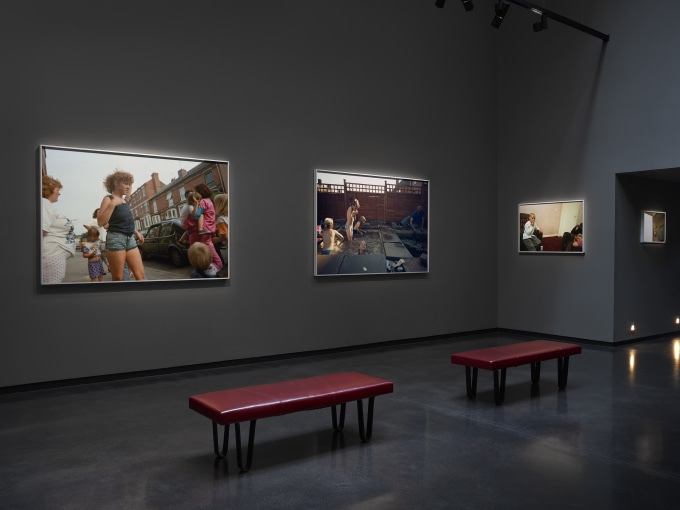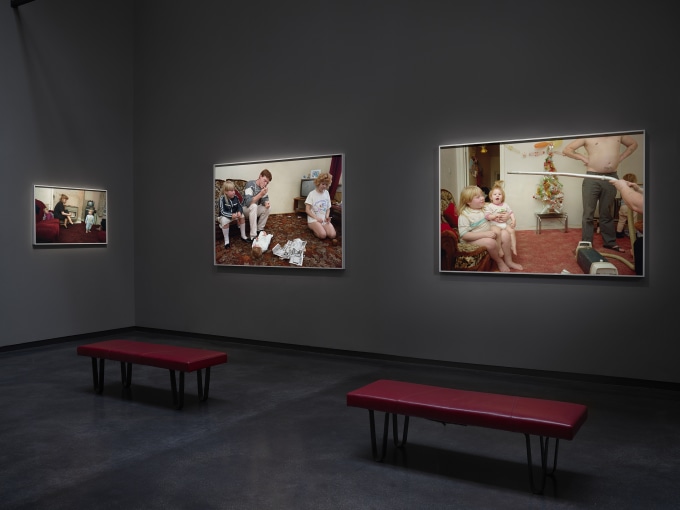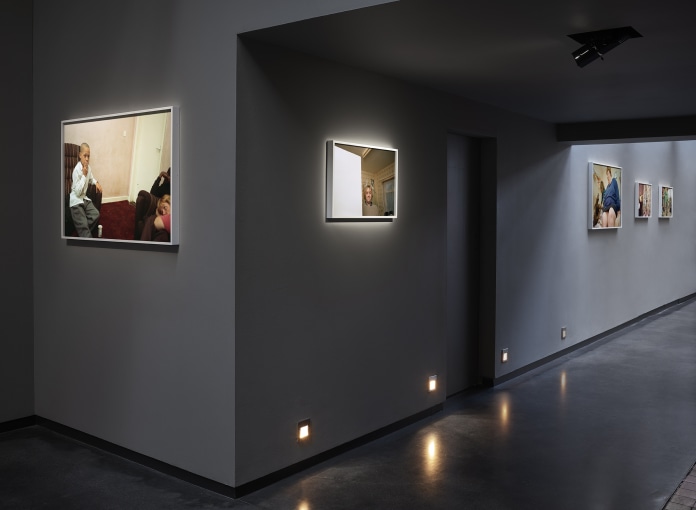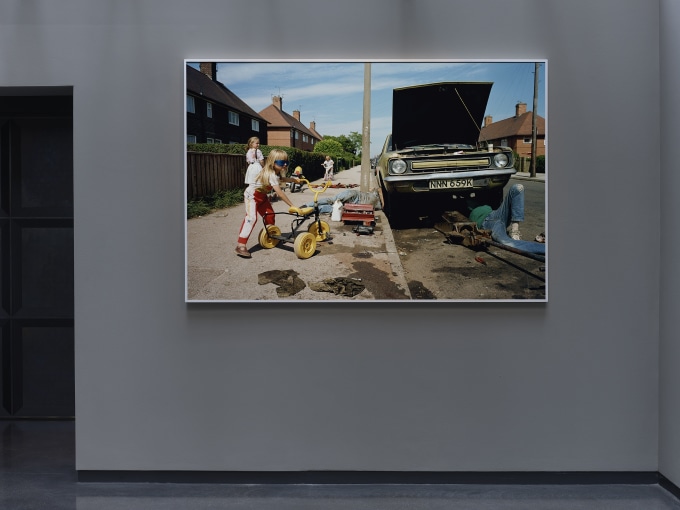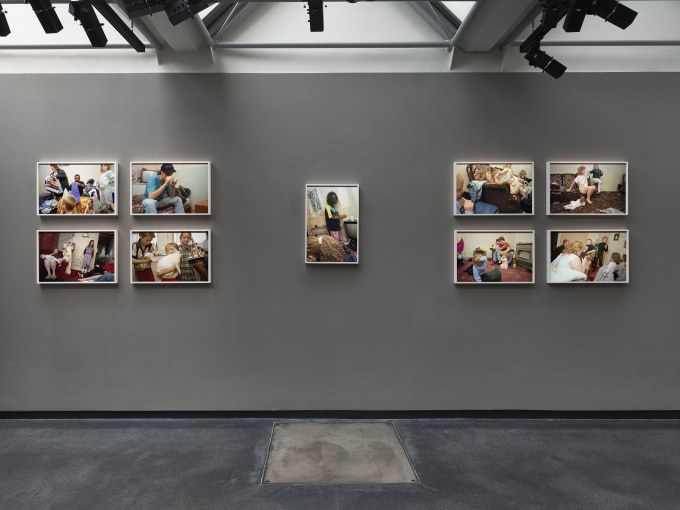“I am seeking and searching constantly. People ask me what I find interesting, and the
answer is everything.” – Nick Waplington
Hamiltons is thrilled to debut the gallery's first exhibition with Nick Waplington, marking the release of previously unseen image variants and new works from his iconic
series Living Room, 1991.
Nick Waplington’s first book, Living Room, was published in 1991, and was an instant
sensation within the photography world and beyond. The 59 photographs in the original
edition documented the lives of friends, families, and neighbours on the Broxtowe housing
estate in Nottingham, England, where Waplington spent many years making thousands of
images. This extensive archive of unseen photographs forms the basis of this new
conceptual remake of the 1991 monograph, one that revisits and refashions Waplington’s
iconic work from a contemporary vantage point. This new work follows the same
sequencing of landscape and portrait images as the original edition - replacing each of the
59 photographs with an as-yet-unseen work from the Living Room archive, often from the
same roll of film as the original image. The result is both familiar and uncanny, a vivid
journey back to Thatcher’s Britain and a testament to the decades of art and life that have
elapsed between then and now.
Whilst Waplington’s early work was intrinsically rooted in ‘documentary’ practice, it also
challenged the conventional documentary gaze. Simon Baker, director of Maison
Européenne de la Photographie, importantly notes that Waplington employs a deeply
humanistic approach which is resistant to voyeuristic or intrusive documentation. Indeed,
Baker states: “Waplington is broadly curious and deeply committed in his work, and as
serious about family life as politics or art, or music and the social cultures around it, but
always as both witness and participant”, a method which achieves his simultaneous intimacy
and invisibility.
“When I thought something was going to happen, I’d pick up the camera and take some
pictures very quickly and then put the camera down. And then not take any again for a
while. You don’t want to be taking pictures all the time in a documentary-esque situation,
because otherwise it becomes about you and the camera and not the situation. It’s about
having an instinct for when something is going to happen.” – Nick Waplington.
Waplington’s choice of a 6x9 camera, commended by John Berger in an essay in both the
1991 and 2024 publications of ‘Living Room’, produces a landscape crop where “the forms
photographed have the space to expand, to become landscapes, or even firmaments“. The
artist’s purposeful use of colour emanates American street landscape characteristics, mixed
with a quintessentially British documentary style. Waplington reacts to what he describes as
the common “grainy, downtrodden, black and white interpretation of working-class life”;
instead, Waplington’s lens does not estrange the subjects from the viewers but turns the
domestic into public in a way where tears, screams, jokes, solace, tiredness and pleasure
have equal room.


